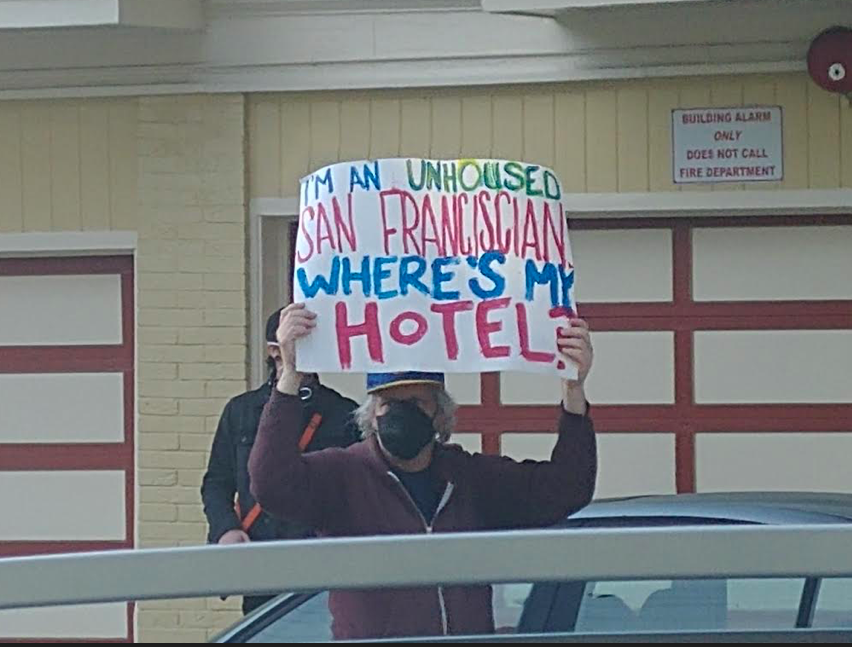The Board of Supes agreed unanimously Tuesday to keep the city’s shelter-in-place hotels open – but only after a compromise that will prevent some new hotel residents from any guarantee they won’t be sent back to the streets.

The emergency measure would ensure that people currently living in the hotel rooms could keep their homes until the city can demonstrate that they have been moved into acceptable permanent housing.
The key element, however, is that sponsors wanted to keep the 2,300 hotel rooms open and available to anyone who is currently unhoused. The rooms are now earmarked for people with high COVID risk.
As the Mayor’s Office moves existing residents into permanent supportive housing – and there are now, the city says, about 600 units available – those hotel rooms would have simple shut down.
But under the new ordinance, the city has to keep them open and allow other unhoused people to get off the streets.
By many medical accounts, just about everyone living on the streets is by definition at high risk for COVID.
The sticking point: Sup. Rafael Mandelman wouldn’t vote for the measure unless it allowed the city to evict those new residents even if there’s no housing for them.
That, he said, was a financial decision: If the federal government stops paying for 85 percent of the cost of the rooms, the city, Mandelman said, won’t be able to afford the millions of dollars in costs.
So at that point – and we don’t know when or if it will happen – the city will have to either cover the cost out of the General Fund or shut down the program. And there won’t be enough available housing for everyone, so some would wind up back on the streets.
Keeping the hotel rooms open, Mandelman said in committee, “might be the moral and humane thing to do, but it’s a $70 million to $100 million project.”
Sup. Matt Haney, who sponsored the bill, said that the SIP hotel program “has provided shelter, meals, and safety to 2,300 people. It has a positive stabilizing effect, and it’s cost-efficient.”
Sup. Hillary Ronen noted that “tonight hundreds of people are sleeping on the streets in my district, and I want to know that if there is someone moved out, there is a hotel room for them.”
Mandelman insisted that the rehousing provisions can’t apply to currently unhoused residents who move into rooms vacated by a person with high COVID risk. “I am grateful that we were able to address my concerns,” he said.
The legislation has to be renewed every 60 days, so it’s not a long-term program.





